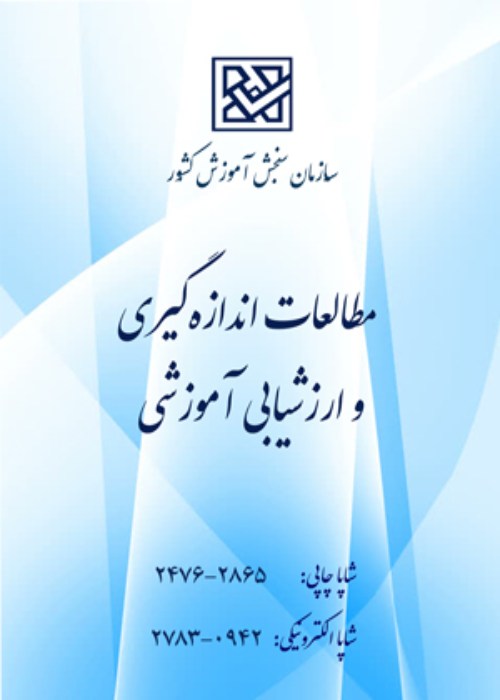Reflection on the Anthropological Foundations of "Quality Assessment" in the Iranian Higher Education and its Compatibility with Islamic Anthropology
Quality assessment is one of the most common reforms of higher education in different countries of the world, which has been expanding especially since the 1990s and under the influence of Neoliberalism. The purpose of this quality assessment was to make university accountable and transparent, and thus improve the quality of the university as a market-oriented institution. In recent years, these market-oriented reforms have prevailed in different countries of the world and their footprint can also be seen in the higher education of Iran. The purpose of the present research was to study quality assessment with a critical and philosophical perspective. To achieve this goal, conceptual analysis, qualitative content analysis and inferential method were used. First, an attempt was made to analyze quality assessment as a concept and to examine its anthropological foundations. The next step was to analyze the market-based quality assessment and related reforms in the supporting documents of Iranian higher education, and finally the compatibility of anthropological foundations of market-oriented quality assessment with the Islamic perspective has been studied. The findings of this study indicate that quality assessment in the core of marketisation relies on the anthropological foundations of Neoliberalism and especially homo economicus model. This model account man as a self-interested, utility-maximizer, and competitive being. From this point of view, economic rationality is the supreme model for all rational activity and should be guide of all other human activities. Marketisation is the result of the idea that its goal is to manage institutions such as universities in a market-oriented way, which is interpreted as New Public Management (NPM). Therefore, market-oriented quality assessment tries to evaluate the quality of the university in a way similar to commercial companies and to make the university transparent and responsive to the needs of customers. Thus in these model universities, for funding, have to compete with other universities and higher institutions in competitive higher education markets. Therefore, the student is a customer of knowledge and educational services, and the university attracts her/him through marketing and offers her/him the knowledge as a commodity. In higher education markets, economic rationality and cost-benefit logic control and regulate all relationship and process includes quality assessment. Examination of Iranian higher education support documents indicates the impact of the NPM and market-based quality assessment. In these documents, market-oriented reforms are accepted as one of the necessities of modernizing the university, which the university must accept them for transformation. In these documents, an attempt has been made to intertwine market-oriented reforms with Islamic-Iranian goals. Competitiveness of universities, uncontrolled development of privatization, development of commercialization logic, and market-based quality assessment in universities are examples of market-oriented reforms considered in Iran's higher education supporting documents. Of course, market-oriented reforms in Iran can be considered as a kind of quasi-Neoliberalism that, although it has retained some basic principles of Neoliberalism, but in the cultural context of Iranian higher education, it has taken a different form and has created new damages. These reforms further seek to make the university financially independent from state funding, but at the same time increase the government's indirect control over the university by new methods of quality assessment. The commodification of knowledge, the student as a customer, the evaluation of quality on the basis of quantity and the production of objective results, coercive accountability and the resulting moral model have important cultural and philosophical meanings that have been severely criticized in the Islamic view. Market-oriented quality assessment leads to a kind of prformativity and quantification, and its result is a kind of academic ethics based on cost-benefit logic. In this view, knowledge, educational services and educational relations are evaluated based on the profitability. In this view, the religious and traditional conception of knowledge as a path to perfection and the moral values based on it are seriously questioned. At a market-oriented university, a university professor is a knowledge provider, and his value depends on the extent of his educational services and customer satisfaction.
- حق عضویت دریافتی صرف حمایت از نشریات عضو و نگهداری، تکمیل و توسعه مگیران میشود.
- پرداخت حق اشتراک و دانلود مقالات اجازه بازنشر آن در سایر رسانههای چاپی و دیجیتال را به کاربر نمیدهد.


